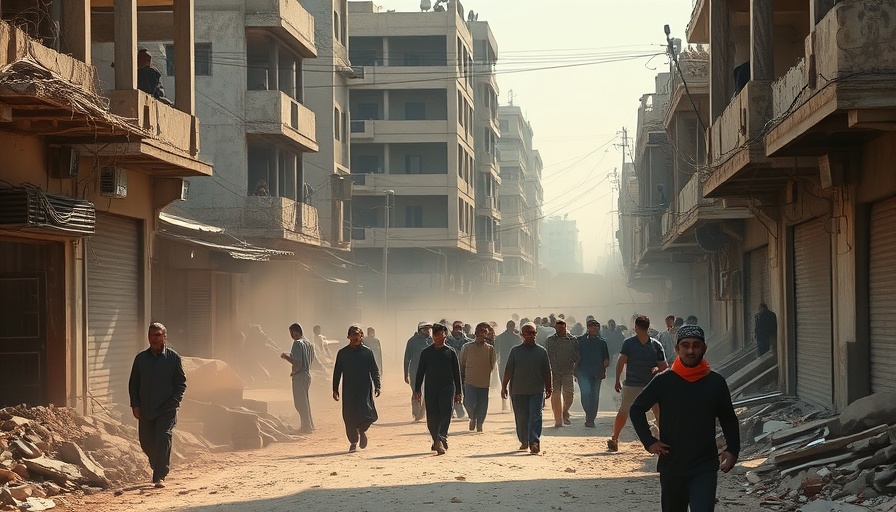
Opening New Pathways for Aid in Gaza
As the humanitarian crisis in Gaza continues to escalate, a new organization, the Gaza Humanitarian Foundation, is stepping in to alleviate the suffering of the Palestinian people while deftly navigating the challenges posed by both Hamas and the United Nations (UN). This move highlights not just the immediate needs of civilians but also the complexities surrounding aid delivery in conflict zones.
The Humanitarian Landscape and Its Challenges
The situation in Gaza is dire; from food and water shortages to a growing distrust in institutions like the UNRWA, the need for reform in how aid is distributed is urgent. Since its establishment in 1949, the UN Relief and Works Agency has served as the primary humanitarian lifeline for Palestinian communities. However, revelations about ties between UN staff and Hamas have raised serious concerns among Israelis and the U.S. government.
The backdrop of these concerns includes disturbing claims that some UN workers collaborated in the horrific attacks that have led to increased casualties and military intervention from Israel. This has motivated a significant segment of the international community to reassess its support of UN initiatives in Gaza.
Understanding the Gaza Humanitarian Foundation
In response to these challenges, the Gaza Humanitarian Foundation aims to deliver necessary aid directly to those in need without the interference of militant groups. By focusing on transparent distribution methods and cutting out the complexities associated with traditional channels, the foundation seeks to offer a lifeline backed by the community rather than political agendas.
The Risk of Aid Theft and Black Markets
One of the grave concerns around aid delivery in Gaza is the ongoing issue of aid theft by Hamas and the corresponding black market for essential goods. Reports indicate that food and medical supplies intended for the vulnerable Palestinian population are frequently seized and resold at inflated prices, putting additional strain on the already struggling families.
This situation clearly illustrates not just humanitarian neglect but a larger systemic failure where aid is weaponized in a conflict. The Gaza Humanitarian Foundation addresses this by implementing rigorous oversight and accountability measures to ensure that supplies reach the intended recipients.
Community Empowerment: An Alternative Approach
At the core of the organization’s mission is the commitment to empower local communities. By involving residents in the decision-making process regarding the distribution and management of aid, the Gaza Humanitarian Foundation fosters a sense of ownership and responsibility. This could serve as a model for future initiatives, transforming the narrative from dependency on foreign aid to self-sufficiency and resilience.
Future Predictions: What Lies Ahead?
The success of this initiative could signal a substantial shift in the landscape of humanitarian aid in Gaza. If the Gaza Humanitarian Foundation can successfully navigate the political minefield created by NGOs and militant groups alike, it may inspire similar initiatives worldwide. The implications for communities in conflict zones could be revolutionary, paving the way for more localized and less politicized forms of aid distribution.
Conclusion: A Call to Rethink Aid Strategies
As Gaza faces exacerbating conditions, innovative solutions are imperative to ensure that relief reaches those in need. The Gaza Humanitarian Foundation represents a critical effort not only to provide immediate assistance but also to catalyze a broader transformation in humanitarian aid delivery. For those observing from afar, particularly in places like Philadelphia, it is essential to understand how these methods could redefine community engagement in humanitarian efforts.
The need for transformative approaches is now more crucial than ever as the stakes rise. Supporting such initiatives can contribute to rebuilding lives torn apart by years of conflict. Join the conversation on how best to utilize aid effectively and transparently to ensure hope and dignity for communities in crisis.
 Add Row
Add Row  Add
Add 




Write A Comment